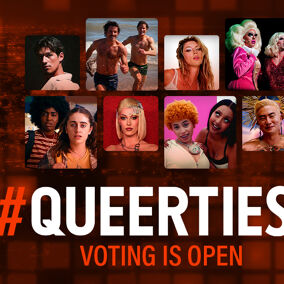
Gender disappointment—a taboo topic often talked about behind closed doors—is when parents feel sad or frustrated after learning that the sex of their baby doesn’t align with their hopes.
This feeling, while completely valid, deserves a closer look in the context of societal norms and gender expectations. Recognizing these emotions while questioning the binary ideas behind them can lead to more inclusive and understanding views on parenting.
What is gender disappointment, really?
How about we take this to the next level?
Subscribe to our newsletter for a refreshing cocktail (or mocktail) of LGBTQ+ entertainment and pop culture, served up with a side of eye-candy.
Gender disappointment is a genuine emotional response that some parents confront when the sex of their unborn child doesn’t match their expectations. While this may seem trivial to some, it’s a profound illustration of how deeply societal norms and gender expectations are ingrained in us.
There are countless YouTube videos, TikToks, and Reels of gender reveals featuring parents’ disappointment when the baby’s sex does not align with their expectations.
Moments like these also beg the question of why the sex of a child holds such significance and to consider the impact this has on broader issues of gender fluidity and identity.
Related*


Do you know the meanings of AMAB and AFAB?
We can use terms like AMAB or AFAB to discuss gender identity in a respectful way, while also recognizing the diversity of each others’ experiences.
Under the curtain of cultural and personal biases
The roots of gender disappointment are deeply embedded in both cultural traditions and personal expectations. These sources of influence shape how parents perceive and react to the gender of their unborn child, often reinforcing outdated gender roles and expectations.
- Cultural imprints: Many cultures still harbor a strong preference for one gender over the other, often due to historical and economic reasons. These preferences are not just personal but are built into the fabric of societies, influencing parents’ expectations and emotional reactions.
- Echoes of personal desires: Parents often have specific dreams and activities they associate with raising a son or a daughter, influenced by their personal experiences and societal narratives about gender. This can lead to a strong emotional reaction when these expectations are not met.
- The hormonal scapegoat: While hormonal changes in pregnancy can heighten emotions, attributing deep-seated cultural issues to biology alone perpetuates inaccurate stereotypes and oversimplifies the problem—shifting the focus from necessary societal changes.
Moving forward: Validation and challenge
Addressing gender disappointment effectively involves both validating the feelings involved and challenging the societal norms that give rise to them.
Validating experiences
It’s important to create spaces where parents can openly discuss and process their feelings of disappointment without judgment. This validation is a crucial step in not only supporting individual parents but also in challenging and reshaping societal norms about gender.
Think beyond pink and blue
The profound disappointment some parents feel highlights the powerful role that marketing and media play in perpetuating binary gender norms. From the earliest advertisements for baby products to storylines in children’s media, the colors pink and blue serve as shorthand for gender, embedding these expectations from birth.
Interestingly, pink was initially considered a masculine color and blue a feminine one, but this changed in the mid-20th century when clothing manufacturers began marketing specifically to boys and girls. This shift solidified the notion that certain colors were inherently tied to gender identity.
In recent years, however, there has been a pushback against this strict adherence to traditional gender norms. Toys, clothing, and media aimed at children now feature more diverse representations of gender expression.
And yet, many parents still struggle with letting go of these expectations for their own children.
Related*


Meet the parents raising “theybies,” children with no gender at all
Theybies are a thing.
Challenge the myth of the perfect family balance
The aspiration for a gender-balanced family is a narrative that the media often romanticizes. This narrative suggests that an ideal family requires a harmonious mix of genders among children, typically encapsulating the presence of both boys and girls to complete the family unit.
For parents who hold onto this ideal, they may experience feelings of disappointment or even failure if they do not have a mix of genders among their children. They may find themselves constantly comparing their family to others or feeling pressure to have more children in hopes of achieving the desired balance. This can create unnecessary stress and strain on the parent-child relationship.
Support and education
Enhancing support networks for parents and educating parents and the public about stereotypes and gender diversity can help mitigate the intensity of gender disappointment. Studies and statistics are extremely limited, but forums and social media highlight the reality of the frustration or anger when a baby’s assigned sex does not align with their expectations.
Efforts to improve our knowledge on the topic can encourage a more inclusive and accepting approach to parenting, free from the constraints of traditional gender expectations.
Related*


Are you Daddy material? Gay men give their reasons for wanting kids
“Some people just don’t enjoy drinking/partying very much and want to pass down all their knowledge of the world onto a child.”
Embracing complexity over conformity
When rethinking reactions to gender disappointment, it’s key to acknowledge the validity of these feelings while also considering how deeply rooted societal norms about gender can impact these emotions.
This viewpoint offers a more detailed look at personal and societal expectations, sparking a wider conversation about the intricacies of identity and family dynamics in our modern world. And reflecting on it can deepen our comprehension of parenting challenges and the varied experiences that influence our views on family.
Subscribe to the Queerty newsletter to stay updated on the latest LGBTQ+ news, entertainment, and culture.
Don't forget to share:







































































ShaverC
People who should not have kids.
Fahd
Keep it to yourself until the child is grown enough to process the im per fec tions of the parent.
inbama
The bots wouldn’t let you type imp erf ect ions as one word?
Wow.